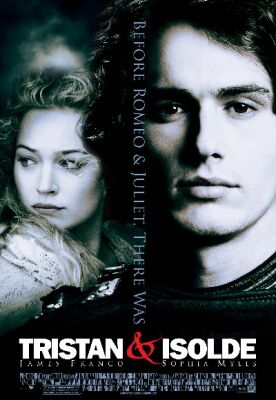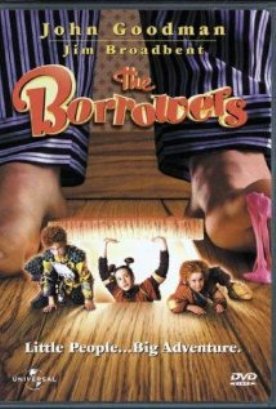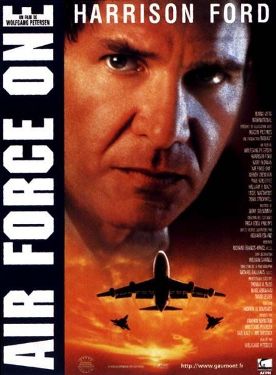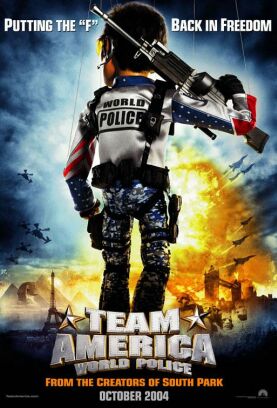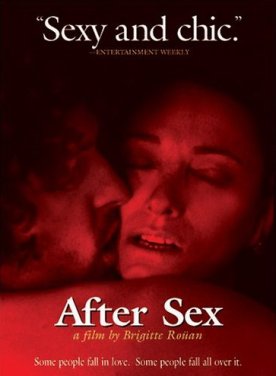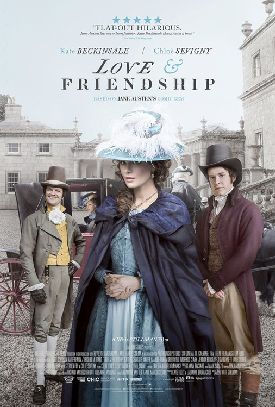Tristan and Isolde
Generally speaking, the classic themes ain’t what they used to be. Take love versus duty. Back in the days of Shakespeare or Racine the duty side of the equation might have been less charming or attractive than the love side, but nobody had to work very hard to make an audience see the push-pull of the opposed forces. The problem with a movie like Terrence Malick’s New World is that all the moral force is on one side, that of love, and duty seems an irrelevance from the start. Why Captain John Smith (Colin Farrell) — or anyone else — should have chosen to cling to European ways instead of living a happy, carefree, sensual life in the forest with the Indians remains a mystery to the end. At first it looks as if Tristan and Isolde, directed by Kevin Reynolds from a screenplay by Dean Georgaris is going down the same path, but it doesn’t — quite.
Its story reaches way back into the middle ages, and its most famous re-telling was in Richard Wagner’s opera, which premiered in 1865. But in the new version, when Tristan (James Franco) attempts to renounce his love for Isolde (Sophia Myles), saying “There are other things to live for: duty, honor. . .,” she replies: “They are not life; they are the shells of life.” Shades of Colin Farrell’s Captain Smith’s claim that “all else,” apart from gamboling in the woods with the teenaged Pocahontas, “is unreal”! But where this is all too true of Mr Malick’s movie, Messrs Reynolds and Georgaris at least make an effort to argue the contrary case against Isolde’s contention that feelings are all that matters. To begin with, of course, there is the problem of King Marke (Rufus Sewell), Tristan’s friend and benefactor who has saved his life, losing his right hand in the process, adopted him when he was an orphan and treated him with more kindness and consideration than his own family. All the obligations of gratitude, friendship and loyalty line up on the side of duty and against any fooling around by Tristan with Marke’s new young wife.
Nor is that all. For duty is also represented by the complicated political situation which the authors take a good deal of trouble to adumbrate. On their telling, the Irish are able to exact tribute from the disunited British because they have become the regional hegemons in the power vacuum left by the departure of the Romans from Britain. Not only does the political scenario help to flesh out the obligations of duty, it also allows for the piquant effect of having poor British peasants run screaming with terror: “Here come the Irish!” King Marke is here represented as struggling to forge an alliance of the divided British tribes — Angles, Saxons, Jutes, Picts, Celts and leftover Romans — into a unified nation, strong enough to resist the Irish demand for tribute. To this effort the contributions of Tristan, Marke’s best knight, are crucial. Moreover, because Marke is the only figure capable of unifying the tribes, his cuckolding and subsequent disgrace will leave them leaderless.
This is not quite the same thing as a contemporary would have understood by “duty” or “honor,” perhaps, but it may be as near as we can get to an equivalent.
Yet there are problems with the movie that prevent it from succeeding as we might have hoped. For one thing, there seems to be no reason for the Irish King Donnchadh (David O’Hara) to offer his daughter as a prize for whichever of the British barons wins in a tournament. The last thing he wants is for a champion over all to emerge. And then there are the casual anachronisms, though it’s possible that these bother me more than they will most viewers. I don’t mean only Marke’s vaccination scar or the recitation by the lovers of John Donne’s poem, “The Good Morrow,” which wasn’t to be written for another thousand years. There is also Isolde’s miss-ish proto-feminism. The first time her father tries to arrange a marriage for her, she stamps her little foot and cries: “Am I just a chattle to be traded?”
Well yes, dear, you are, actually. You’re living in the Dark Ages, remember? It’s unpleasant, I know, but there it is. Flouncing out of the castle to live your life as you please not only isn’t an option, it isn’t even imaginable as an option. Similarly, she asks Tristan: “Why does loving you feel so wrong?” Gee, I wonder! But no one brought up as she would have been brought up would wonder. Then, when Marke reproaches her with her adultery, she defends her lover by saying: “He tried harder than you can possibly imagine — because he loves you.” Well, we know what she means. But I take leave to doubt whether any sixth century Isolde could have used such soap-operaish — or Oprah-ish — language, let alone whether a sixth century Marke could have understood it and sympathized with it.
Unfortunately, I have no doubt this Tristan could. He is the biggest problem of all with the movie. Mr Franco is the “sensitive” type and too much the Hollywood pretty-boy — he once played James Dean in a made-for-TV movie — which he exacerbates here by always looking stricken: with love when he’s with Isolde and with guilt when he’s with Marke. This is supposed to be the greatest knight in the ex-Roman world and the linchpin of British nationhood? He’s a lovesick teenager! In other words, both the script and the acting make the emotional side of the story way too lightweight to pull effectively against the heavy load of duty which the film — admirably, it should be said — has set against it. Granted that’s not the usual problem with a movie on this theme, but it is nevertheless a fatal one.
Discover more from James Bowman
Subscribe to get the latest posts to your email.

